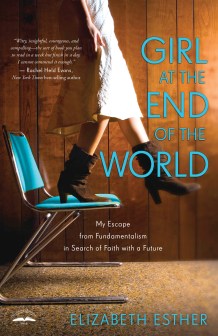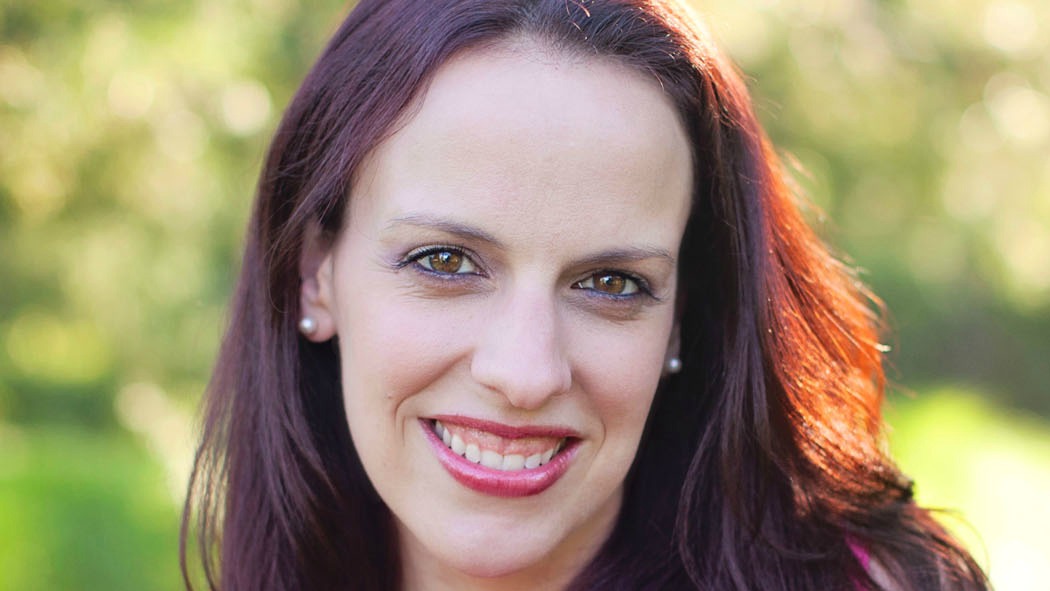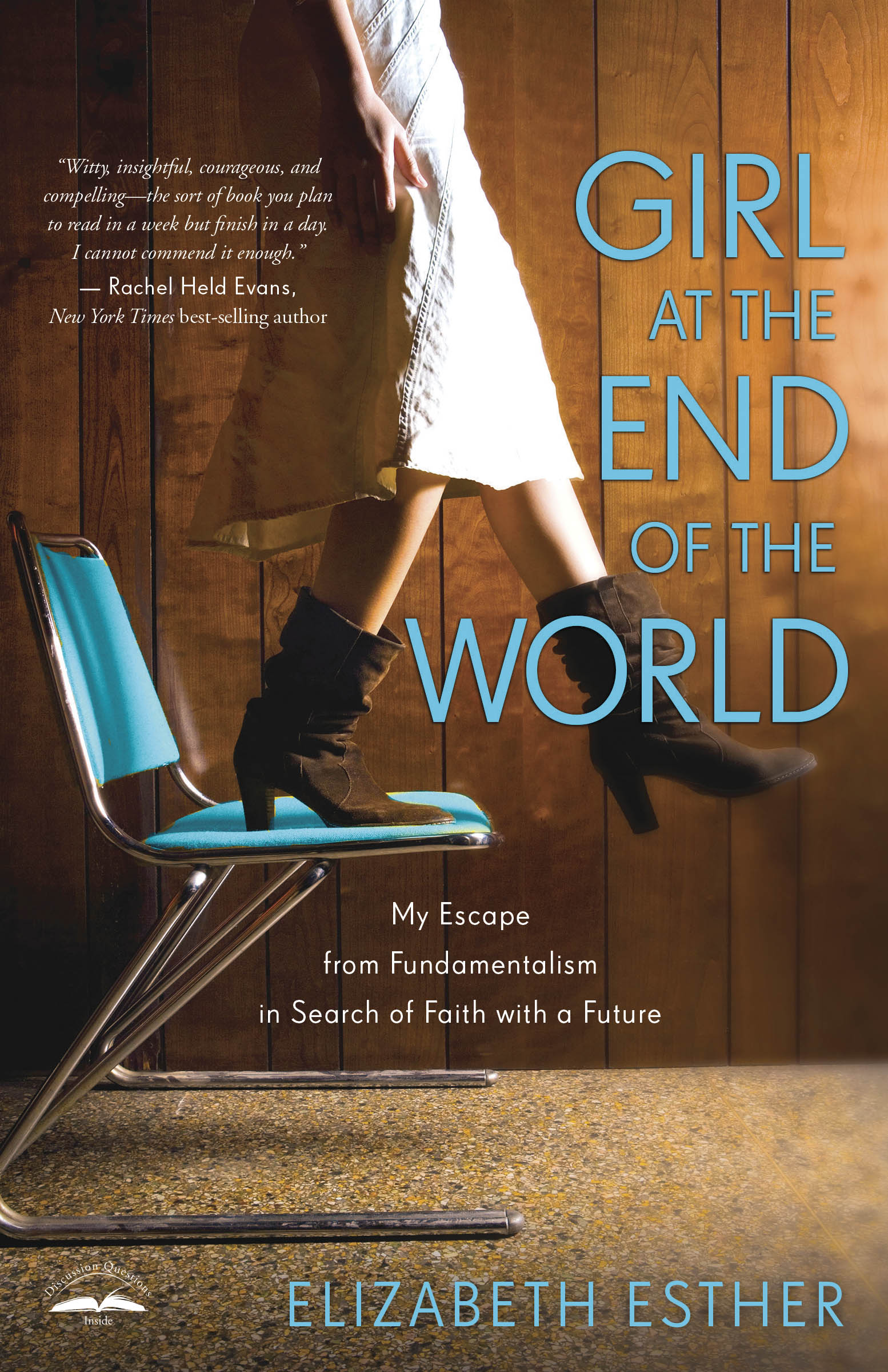If you've ever been stuck in traffic caused by drivers slowing down to get a glimpse of the accident scene, you know we humans are a nosy bunch.
So it's no surprise that readers have devoured a steady stream of recent memoirs penned by people who grew up in abusive, controlling fundamentalist sects. We curiously peek into the barbed-wire edges of different faith traditions—Jewish, Mormon, and Christian—from the perspectives of their former members.
While the theology may differ, the plotlines in this popular genre vary little: the author's childhood was a horror, leaving the group required great courage, and integrating into mainstream society afterwards remains a disorienting, difficult process. Popular blogger Elizabeth Esther's Girl at the End of the World: My Escape From Fundamentalism in Search of a Faith with a Future, set to release next Tuesday, March 18, is a recent addition to the genre.
Are these stories (and similarly-themed blogs, films, and TV shows) the pulp nonfiction equivalent of gapers' block, giving us a chance to gaze at the wreckage? Or are they cautionary tales about the high cost of blind allegiance? The answer may be yes to both.
Most importantly, though, these memoirs amplify the once-voiceless among us, and no matter how painful, unbelievable, or bitter the accounts, they require us to listen. As followers of Jesus, we are committed to both growing in wisdom and protecting "the least of these." Their candid, painful reflections remind us that sometimes the most vulnerable among us may be abused children now living inside adult bodies.

Esther's Girl at the End of the World follows her upbringing in a network of about 50 or so fundamentalist fringe congregations once known as The Assembly, led by her grandfather, George Geftakys. She introduces her eight-year-old self to readers by telling them, "I'm classically trained in apocalypse stockpiling, street preaching, and the King James Version of the Bible. I know hundreds of obscure nineteenth-century hymns by heart and have such razor-sharp 'modesty-vision' that I can spot a miniskirt a mile away."
While her cult-leader grandfather nurtured his double life of sexual immorality, and domestic violence ravaged her uncle's household, Elizabeth Esther's childhood home-turned-commune was characterized by the rancid fruits of her family's teaching. She recounts a childhood filled with unrelenting physical, spiritual, and emotional abuse.
When she and her husband exited the cult as young adults with three babies in tow, they entered broader society like refugees. "I used TV as my shortcut to understanding pop culture and assimilating into mainstream America," she said. "That made me prime bait for every putrid reality show, game show, cartoon, and newscast. I got emotionally involved in everything from Barney and Friends to The Bachelor. One night I went to bed crying because I couldn't believe Tony left Billie Jean at the altar on a trashy show called Married By America."
She struggled to learn how to make even simple choices for the first time in her life. Decisions about everything from whom and when she could marry to how she was to discipline her children had been prescribed by her authorities (which, in her case, also often happened to be family members) in The Assembly.
The stories in these memoirs contain details far more unsavory and titillating than a jilted bride's meltdown on a reality TV program. While the ex-fundamentalist genre may tap into our hunger for bits of juicy gossip, a thoughtful reader will imbibe these stories with the sobriety they require.
No one ever wakes up one day and decides to join a cult. It happens bit by bit, as members surrender over time to the will of a "visionary" leader. They practice their special version of True Faith, in the single, all-or-nothing manner prescribed by the cult leader and his revelation. Children of members don't get to opt out of their parents' journey down a destructive path.
The children who've grown up in fundamentalist cults are not just exiting a sour church situation, but the only lives they've ever known. They leave behind their families, their social networks, and their identities. Memoirs written by ex-fundamentalists show us in slow motion what courage can look like. These stories detail the excruciating emotional journey a cult member must make to work toward a decision to leave. These books allow us to hear the sound of a door handle turning for the last time as the author departs.
And these stories allow us to follow them as they begin to build a life for the first time on the other side. Even the most acid-toned memoirs penned by ex-fundamentalists (and there are plenty of these books out there) are a reminder that abuse done in God's name affects all of us in the body of Christ.
Leavers face the lonely task of jettisoning the rule-laden, fear-drenched version of "faith" they grew up with. Many never return to any form of organized religion. Elizabeth Esther reports that counseling, medication, time, and a mustard seed of faith in Christ that survived the dysfunction of her childhood has grown into a connection with Catholicism. "I once heard a story about a woman who asked God to move a mountain," she wrote. "God said okay, and then He handed her a shovel. I think that's a good analogy for how my story ends. I'm still shoveling. I'm still uncovering, sorting, reexamining."










